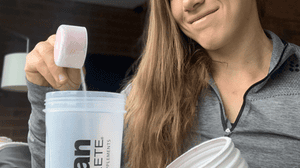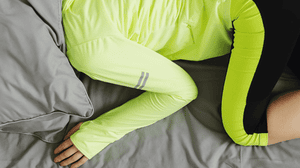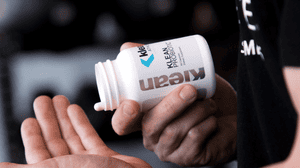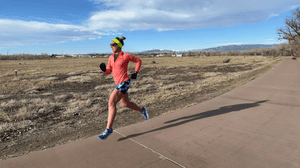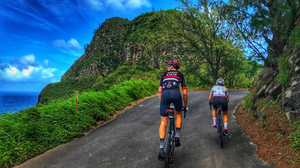

Now that we know what and when to eat prior to exercise (read part 1: Pre-Workout Provisions), it’s time to keep the fuel tanks stocked and the bodily engines primed to go the distance. Recommendations for fueling during exercise will vary based on pre-exercise feedings, glycogen status, and planned exercise intensity and duration. Additionally, it should go without saying that all guidelines are subject to trial and error. It's crucial that athletes experiment during training so they can adjust their food and fluid intake based on gut tolerance, and find their perfect intra-exercise nutrient timing routine.
The Motivation
Water alone may satisfy athletes’ intra-exercise needs during moderate-intensity, short-duration workouts – but for longer workouts, carbs, electrolytes, and potentially amino acids become necessities. This is especially true if pre-workout provisions were ignored, if athletes plan to work out for more than 60 minutes or very intensely for shorter time periods, and/or the weather is heating up.
By consuming carbs, athletes can offset muscle and liver glycogen depletion and reduce calcium release by muscles, both of which can maintain blood sugar balance and delay fatigue, and minimize immune perturbations.
Carbs and water also reduce the perception of exercise effort and enhance cognitive processing. The addition of supplemental electrolytes to the mix allows the muscles to function optimally.‡
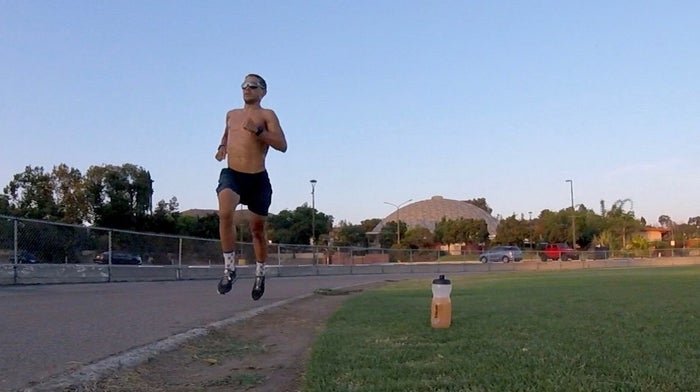
The Details
- Intra-Exercise Carbohydrates1: There is no question that carbohydrate use during exercise has been one of the most extensively studied topics in sports nutrition since the 1960s. Consuming carbs during exercise can do wonders for performance when sessions last greater than 60 minutes. But always keep in mind that excessive carb intake can counterproductively lead to gastrointestinal (GI) upset, especially when exercise is intense. Consuming multiple types of carbohydrates, such as the glucose and fructose found in Klean Hydration, allows athletes to boost carb intake up to 90 grams per hour. While carbs are often thought of as the lifeblood for endurance athletes, recent research has also found significant benefits for resistance-trained exercise as well, especially for those athletes training multiple times per day.‡
- Intra-Exercise Protein: Recent research suggests that consuming protein or branched-chain amino acids with carbs before and/or during resistance training can lead to enhanced muscle protein synthesis (MPS), and reduced muscle protein degradation immediately after exercise, compared to consuming carbs and protein only during the post-exercise period. Endurance and ultra-endurance athletes can also benefit from supplemental BCAAs (leucine, isoleucine, valine) (Klean BCAA + ATP) during exercise since, unlike other amino acids, these particular amino acids are used directly by the muscles as an energy source, and BCAA levels decline with extended exercise duration. Furthermore, protein usage increases as glycogen stores become depleted. Athletes may also consider adding protein to the intra-exercise mix since protein intake during longer events can help reduce GI upset and a ‘sloshy’ stomach that may accompany regularly prescribed dosages of carbs.‡
- Electrolytes: The loss of sodium, potassium, chloride, calcium and magnesium during exercise can lead to fatigue, dehydration and muscle cramps. Athletes can try adding one to two Klean Electrolyte capsules to their workouts to help maintain normal fluid balance.‡
The Intra-Fuel & Hydration Plan
Carbohydrates
If exercising for more than 60 minutes, aim for 30–70+ grams of carbs, ideally a combination of glucose and fructose, per hour. Endurance athletes may be able to work towards 90 grams, if tolerated. Trial and error is key.
- 30-60 grams carbs = ½-1 quart sports drink, 1-2 carbo gels, ½ to 1 ½ energy bar(s)
Athletes that start their training while glycogen-depleted or during heat stress (high air temperatures and humidity, or in unacclimated athletes) should consume carbohydrates before 60 minutes. Klean Hydration Supplement can kill two birds with one stone by providing a 6-8% carbohydrate solution and fluids. Athletes should aim for 4 to 8 ounces of Klean Hydration every 15 minutes to meet the 30-60 carbohydrate gram goal.‡

Proteins
Strive for 6-20 grams of protein rich in indispensable (essential) amino acids, primarily when exercising >2 hours. Half to one scoop of whey protein isolate (Klean Isolate Protein Powder) added to 6 to 12 ounces of fluid will meet these guidelines. There is also recent research support for branched-chain amino acids during competition.3 Mix 1 scoop (Klean BCAA + ATP) with 8-10 ounces of water or other beverage, and blend well. This mix will give you an intense dose of about 4 grams of essential amino acids.
Fats
Limit fat intake during exercise, except for ultra-endurance events and only when tolerated.
Fluids & Electrolytes
Create a customized fluid and electrolyte plan to maintain hydration and electrolyte balance based on sweat rate, sweat composition, duration of exercise, clothing, and environmental conditions. In general, athletes should consume ~14-28 ounces of fluids per hour.
More specifically, smaller athletes should aim to consume 3-4 ounces and larger athletes 5-7 ounces every 15 minutes, respectively. Keep in mind that cool fluids, if tolerated, can help reduce core body temperature, reducing the potential for heat stress. Replace excessive sodium losses by consuming Klean Electrolytes. Dosages can be catered to the unique needs of each athlete. Additional capsules are recommended in the heat and when athletes perform multiple training sessions per day.
Athletes that are ’salty sweaters‘ (high sweat rate and exaggerated sodium excretion) should aim for 1 gram of sodium per hour. Tell-tale signs of a salty sweater: gritty, salty residue on the face, neck and/or body after a workout. Athletes can also try the ’salty sweater’ test: wear a dark shirt while working out, dry it in the sun and look for white residue. If it is there, the athlete is officially a ’salty sweater’ and should pay special attention to their electrolyte intake.
Endurance athletes should include carbs with their fluids (~ 6 to 8% carb concentration = 14-18 grams of carbs = 1 scoop Klean Hydration in 8 ounces of fluid). This combo enhances fluid absorption and serves as a readily available energy source.‡
The Bottom Line
As you can see, nutrient timing can be a huge bonus to athletes before and during exercise. The next part of the Klean Nutrient Timing series will investigate the importance of nutrient timing after training and competition, and the conversation will not end there...remember there are 24 hours in a day and athletes need to monopolize on every moment to get the ultimate competitive edge.
ReferencesArent, S.M., Cintineo, H.P., McFadden, B.A., Chandler, A.J., & Arent, M.A. (2020). Nutrient Timing: A Garage Door of Opportunity? Nutrients, 12(1948), 1948.Gervasi, M., Sisti, D., Amatori, S., Zeppa S., Zeppa D., Annibalini, G., et. al. (2020). Effects of a Commercially Available Branched-chain Amino Acid-alanine-carbohydrate-based Sports Supplement on Perceived Exertion and Performance in High Intensity Endurance Cycling Tests. Journal of the International Society of Sports Nutrition, 17(1).McCubbin, A. J.,Cort, M.M., Crawshay, S.T., Gaskell, S.K., Jay, O., Shaw, G., et al. (2020). Sports Dietitians Australia Position Statement: Nutrition for Exercise in Hot Environments. International Journal of Sport Nutrition & Exercise Metabolism, 30(1), 83-98.Roberts, B.M., Helms, E.R., Trexler, E.T., & Fitschen, P.J. (2020). Nutritional Recommendations for Physique Athletes. Journal of Human Kinetics, 71(1), 79.‡These statements have not been evaluated by the Food and Drug Administration. This product is not intended to diagnose, treat, cure, or prevent any disease.

